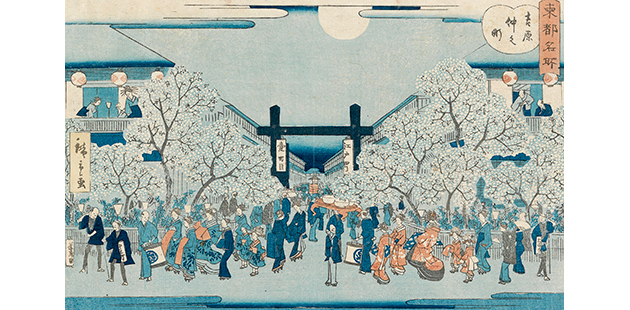 In 1854, Japan opened its borders to international trade following a long period of self-imposed isolation. The resulting influx of Japanese artworks into Europe triggered an artistic revolution, known as Japonisme, that helped to lay the foundations of Western modern art.
In 1854, Japan opened its borders to international trade following a long period of self-imposed isolation. The resulting influx of Japanese artworks into Europe triggered an artistic revolution, known as Japonisme, that helped to lay the foundations of Western modern art.
The never-before-seen Japanese objects and boldly-coloured woodblock prints offered dynamic new possibilities for European artists and craftspeople, who adopted elements of the visual language of Japanese art in order to forge a new European art aesthetic.
Japonisme: Japan and the Birth of Modern Art draws from works from the National Gallery of Victoria’s collection to explore this period in art history through exquisite examples of Western decorative arts, works on paper, paintings, fashion and textiles, photography as well as Japanese art.
“The fervor for Japanese art and design in Europe and America, a phenomenon known as Japonisme, forever changed art and design in the West and had a major impact on the practices of artists of the day, including Vincent Van Gogh,” said Tony Ellwood, Director NGV. “This exhibition offers visitors the opportunity to explore this period in history and appreciate the influential legacy of Japanese visual culture around the world.”
Exhibition highlights include Henri de Toulouse-Lautrec’s iconic Divan Japonais poster, examples from the 1866 Bracquemond-Rousseau dinner service, and a sinuous Art Nouveau display cabinet designed by Louis Majorelle, showcasing the influence of Japanese aesthetics on French furniture.
The exhibition looks at the Japanese reverence for the natural world and the ways in which this theme was transposed into European art. It will also showcase a range of decorative arts that reference these key Japanese themes, including flora, fauna and the landscape. Such objects emulate a Japanese regard for organic forms, vibrant colours and sensual textures derived from nature.
A further highlight of the exhibition is an evocation of a British domestic interior that will illuminate the influence of Japanese art and design principles on British Aestheticism, an art and design reform movement championed by the likes of architect and designer Edward William Godwin, artist James McNeill Whistler and critic Oscar Wilde.
Japonisme: Japan and the Birth of Modern Art
NGV International, 180 St Kilda Road, Melbourne
Exhibition: 25 May – 28 October 2018
Free admission
For more information, visit: www.ngv.melbourne for details.
Image: Utagawa Hiroshige II, Japan 1826–69, Nakanocho in the Yoshiwara, 1862 from the Famous places in the eastern capital series. colour woodblock 21.6 x 34.2 cm (image), 23.6 x 37.1 cm (sheet). National Gallery of Victoria, Melbourne Felton Bequest, 1910
